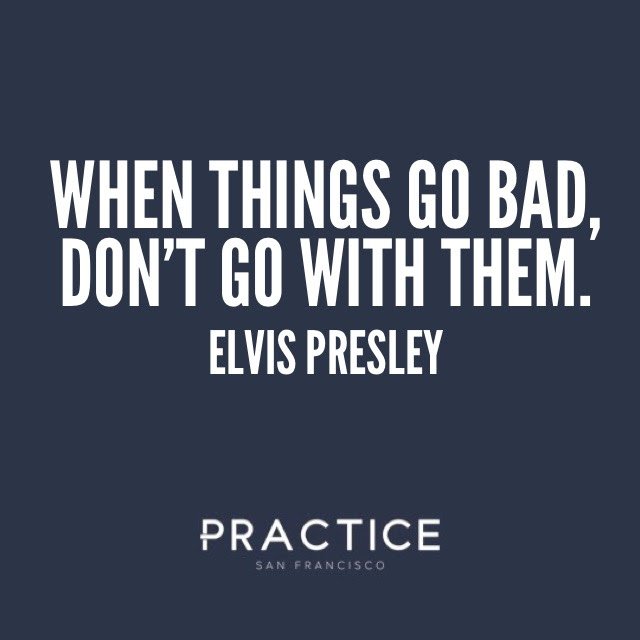Coronavirus
Managing your own anxiety, talking to our kids, and being smart!
Hello, Practice families!
This cold and flu season hit my family hard; out of nineteen work days in February, I was home with a sick kid (or ill myself) for no fewer than TEN of them. I have to say, the prospect of more illness (and more work or school absences!) is terrifying, even outside the context of current coronavirus concerns!
That said, the coronavirus epidemic obviously is at top of mind for all of us at the moment.... and indeed, strikes me as a particularly salient opportunity for all of us (myself included!) to practice our own skills around managing worry and anxiety! Here are a few thoughts on how we can best manage our own coronavirus anxiety, and how we can most effectively manage conversations about the coronavirus with our kids.
1. Prepare, don't freak out.
Acquainting yourself with the facts? Buying hand sanitizer? Smart and helpful. Spending hours down an internet rabbit hole? Not so much. Let's face it, worrying about things doesn't make them any less likely to happen. Worry can absolutely serve an adaptive function-- here, when we worry about coronavirus, we are more likely to wash our hands, to have hand sanitizer available, to stay home if/when we become ill. These all are reasonable and helpful public health precautions to take. But if we stress ourselves out by endlessly spinning about coronavirus contagion and/or possible quarantine, we are not doing ourselves (or our kids!) any favors.... indeed, stress weakens our immune systems! So. Wash your hands. Maybe buy some art supplies or a Lego kit to break out on the off chance that schools do wind up temporarily closing. But don't panic.
2. Use your mindfulness skills to help yourself regulate!
If we can notice that we're feeling anxious, we can investigate and we can change how we feel.
Check in with yourself. Notice how you are feeling, and any links between your emotional state and your own behavior. If you notice that reading news articles or posts in online groups about coronavirus increases your anxiety, choose to stop! (Also, hello: choose reputable sources, and engage with material using your critical thinking skills!)
Notice where your mind is going. Pay attention to what you are thinking, and critically evaluate your thoughts (thoughts are not facts!). If you notice yourself catastrophizing, try to reel it back in. Yes, this is a scary public health threat. And there is a lot that we just do not know yet. Part of coping with anxiety involves getting comfortable with the unknown, allowing ourselves to sit with uncertainty about how things will unfold. When our minds take over in making predictions, we can remind ourselves: maybe that is what will happen-- but maybe not.
3. When talking to kids, keep calm, assess what they know, keep it developmentally appropriate, and stick to the facts.
This NY Times article is spot on(so if you click one link in this newsletter, make it this one!). Limit kids' exposure to the news, especially news with alarmist headlines. This is a great opportunity to talk with older kids about the sources of news, how to selectively consume news from reputable sources, and how to think critically about information in the news! Here is a great comic from NPR about coronavirus for kids. And here's a BrainPop video about coronavirus. If your kids express concern, reassure your kids that your family is doing everything that health officials (CDC, AAP) recommend to stay safe-- and use this as an opportunity to teach them how to hand wash effectively
Finally, under the category of "prepare, don't freak out"-- I just want to assure all of you that we are doing everything we can to keep our community healthy and safe, and we'll ask you to continue to partner with us toward that end!
4. Use Your Best Judgement!
If you or your child are ill, please stay home. If you are set to attend a class or workshop and find yourself under the weather, please message us and we will credit the class back to your account. If you or your child has a therapy session scheduled, we are happy to meet via telehealth. We also are asking our staff and instructors to be attentive to their own health and well-being and to stay home if symptomatic.
We are regularly cleaning and disinfecting our space, and we have hand sanitizer and disinfecting wipes in multiple locations. You are also welcome to use these liberally! We will be asking all class participants to wipe down mats, weights, and props with disinfecting wipes. Please remember that although we are pleased to offer community mats as a perk, you are always welcome to bring your own mat! For the time being, we will be putting away community books and toys in order to minimize the chance that kids will share germs.
At times of high anxiety, connecting with community feels more important than ever-- so thanks for trusting us and for practicing with us!
A few more on-topic and non-alarmist reads:







